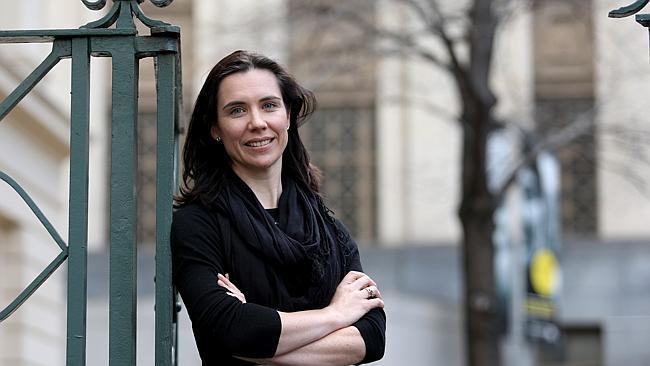New firms unite with old hands on two-way street
THE nation’s new-model law firms may be snatching talent and work from top-tier competitors – but they are also keen to collaborate.

THE nation’s new-model law firms may be snatching talent and work from their top-tier competitors — but they are also keen to collaborate with them to deliver the best outcomes for clients.
Law firms AdventBalance, Hive Legal and Keypoint Law are all in talks with leading law firms to join forces on legal projects, recognising those firms can offer scale and expertise in areas they can’t.
AdventBalance chief executive Ken Jagger says the traditional law firms are not about to disappear any time soon.
“(But) their role has got to change,” he said. “There’s no doubt that new law firms have taken work off the large law firms that they used to want to do.”
Mr Jagger said large firms could take advantage of firms such as AdventBalance — which uses an “insourcing” model to place experienced lawyers at their clients — to create a more flexible workforce. AdventBalance is talking to several large firms about such collaboration.
“We provide lawyers to work inside our corporate clients as temporary in-house counsel,” he said. “It’s a flexible labour force for our clients. There’s no reason why the large law firms couldn’t trim down ... and use people like us on a rise-and-fall basis when more resources are required.”
Newcomer Hive Legal has teamed up with two large firms on specific projects.
Managing director Jodie Baker said collaboration was one of Hive’s core values. Instead of weighing down its balance sheet with the fixed costs of a large permanent workforce, Hive’s structure allows it to “flex” up and down. The firm offers work to barristers or lawyers at rival firms if, in its assessment, they can provide the right service at the right price. It is also prepared to assemble a team that includes the client’s in-house lawyers.
“The large firms sell themselves as being able to do all things all of the time,” she said.
“Whereas what we’re trying to say is we can do a good bulk of your everyday work internally and then when you’ve got a specific project ... we’ve got this network that we’ve worked hard to put together so we can say this is the person or the team you need”.
The firm has deliberately hired lawyers who are not only technical experts but outstanding project managers.
“The practice of law is changing and being able to add value and deliver a project in a way that is cost effective and efficient, pulling the best team together, motivating them ... (is) really fundamental,” she said.
Ms Baker said Hive had very specific expertise in oil and gas, health law and dealing with Indonesia, which its competitors sometimes needed to draw on.
“It’s a two-way street,” she said. “We’re happy to take the lead and pull together the team ... or (sometimes) it will be the other way around where they’re taking the lead and we can offer ... specialisations they don’t have.”
Keypoint chief executive Warren Kalinko has been pursuing the top tier’s talent. The firm’s aim is to assemble a team of senior, leading lawyers focused on the mid-tier market.
The lawyers retain 70 per cent of the fees they generate and decide what form of billing to use, with no fixed quota of billable hours. Mr Kalinko said Keystone Law — the British firm which has a stake in Keypoint and on which it was modelled — had an area dedicated to servicing other law firms, delivering expertise when needed.
He said Keypoint was open to that approach, although it was not the firm’s main focus.
“One of our lawyers has been asked to assist another law firm and we’ve got no problem with that,” he said. “We don’t mind who the firm’s clients are, be they corporations or law firms. We are happy to provide assistance wherever people are looking for it.”


